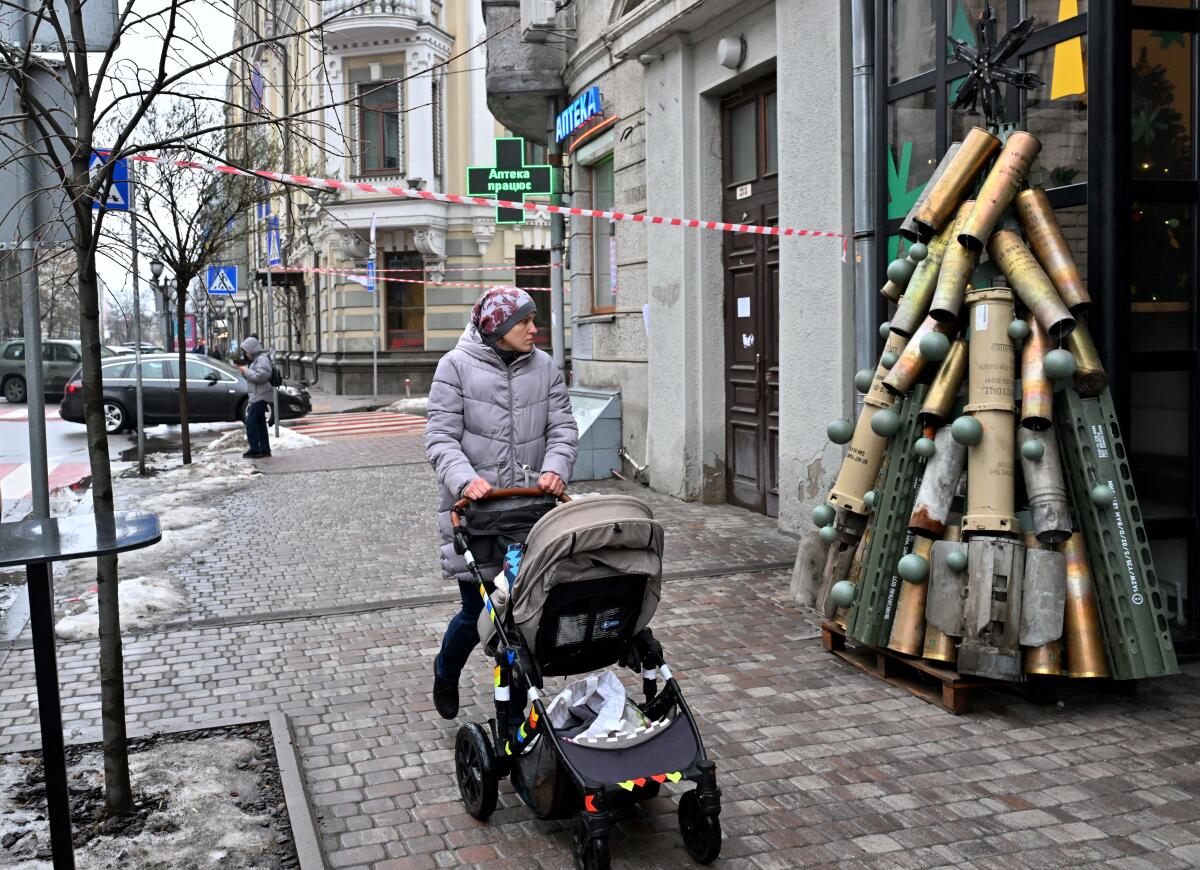Column: Not quite merry and bright — this holiday season brings a welter of contradictory feelings

For a lot of us, this is a time of year when conflicting feelings run amok.
I’m happy, I’m blue, I’m blessed and I’m broke.
You too?
All the effort — the time, the tasks, the cash — required to pull off a merry Christmas can be overwhelming. This year I’m so darn busy that I don’t even have time to dash off a thank-you note to the Colorado Supreme Court.
I loathe the way religiosity has inserted itself into so much of American life — the cruel bans on abortion that make no exception for mothers carrying babies with fatal conditions, the paranoia over children being exposed to books with sexual themes, the backlash to LGBTQ+ progress.
And yet — mixed feelings alert! — I adore the iconography of Christmas. I love songs about Jesus, little drummer boys, stars of Bethlehem, and the stories about the manger, Joseph and Mary, and the Magi.
This may surprise you, but I also love the Bible … as literature.
“Why don’t you believe in Jesus, Auntie?” my niece asked the other day.
Black Santas are local heroes, spreading joy and love to children and families at a bustling mall during the Christmas season.
“I do believe in Jesus,” I replied. “He was a historical figure who definitely existed. I just don’t believe he was the son of God. Oh, and did you know he was Jewish?”
Her eyes widened and she changed the subject. “I really, really hope I get Airpods this year,” she said, for about the eleventy hundredth time.
I think she will. If predictions about holiday spending are any indication, Santa will be jolly and generous. (Our family will be monitoring his travels on Christmas Eve, as we do every year, courtesy of NORAD’s Santa Tracker.) In November, a Gallup poll found that Americans planned to spend more this season than last — about $975 — the highest amount since Gallup began asking the question in 1999.
Savers have gotten an early Christmas present; retirement accounts that began a steep plunge year ago are climbing back up. Gas prices, which peaked in October, have dropped. Inflation has slowed, the unemployment rate is down.
In Bethlehem, the West Bank town revered as Jesus’ birthplace, Christmas is all but canceled, in solidarity with Palestinians’ suffering in Gaza.
Still, all across the country, Americans are bummed. The CNBC All-America Economic Survey found that 66% of its respondents described themselves as pessimistic about the economy, the highest percentage since it began asking the question in 2008. Only 15% said they were optimistic.
It’s a phenomenon that has generated dozens of headlines.
USA Today: “If the economic statistics are good, why do Americans feel so bad?”
The Guardian: “Why aren’t Americans happier about the economy?”
The Wall Street Journal: “The Economy Is Great. Why Are Americans in Such a Rotten Mood?”
With unemployment at historic lows and economic growth brisk, why do so many people tell pollsters the economy is bad? Is it inflation? Or politics? Biden’s future may ride on the answer.
Experts have struggled to explain the disconnect. Yes, mortgage interest rates are up, making it hard for first-time house buyers, especially, to get into the market. And grocery prices seem high, even though they have leveled off or dropped. But none of that fully accounts for the sour national mood.
“I suspect a lot of pessimism about the economy is ‘referred pain,’ ” the Wall Street Journal’s Greg Ip wrote last month. “Just as one part of your body can hurt because of injury to another, pessimism about the economy may reflect dissatisfaction with the country as a whole. Lately, there has been a lot to be dissatisfied about: intensifying political and cultural conflict and intolerance, the pandemic, the border, mass shootings, crime, war in Ukraine and now the war in the Middle East. Indeed, it is hard to explain voter attitudes otherwise.”
I think his analysis is spot-on.
It’s a struggle to feel joy about the world right now.
Christmas in the Holy Land has been canceled, Jordan’s Queen Rania wrote Thursday in the Washington Post. Gaza, she said, “is a hellscape” where nearly half the people are starving.
The court disqualified the ex-president from the ballot under the 14th Amendment, which bars officials who engage in insurrection from holding federal office.
Ukraine has reached a stalemate in its war against Russian aggression, and congressional Republicans are pushing to wind down aid to the besieged country.
Voters seem unable to shake themselves of the idea that President Biden’s age should count against him next November, nor of the idea that he is responsible somehow for their (wrongheaded) perceptions about the economy.
And of course, former President Trump is maintaining his stranglehold on the MAGA Republican base and running strong in polls in battleground states, so it’s not easy to feel optimistic about the future of our democracy either.
Practicing gratitude is one way to fight off the pessimism that encroaches on our holiday joy. Maybe I will send a thank-you note to those Colorado judges after all.
More to Read
A cure for the common opinion
Get thought-provoking perspectives with our weekly newsletter.
You may occasionally receive promotional content from the Los Angeles Times.
















